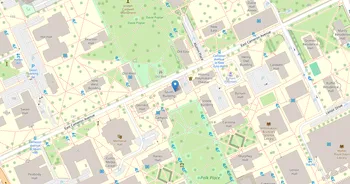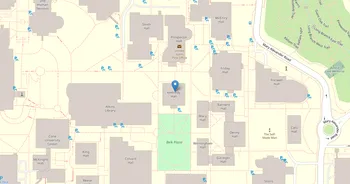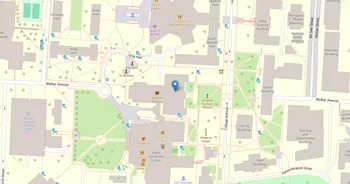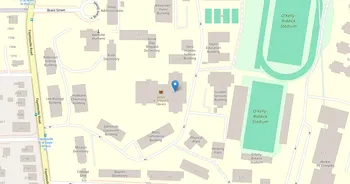University of North Carolina Asheville (UNCA) : Overview, Courses, Scholarships & Rankings
About University of North Carolina Asheville
Set in the Blue Ridge Mountains, UNC Asheville pairs a public liberal-arts focus with hands-on learning across the sciences, humanities, and the arts. Students know their professors, dive into research early, and build strong writing and quantitative skills. The campus brings together modern labs and studio spaces, a lively library, performance venues, and a busy recreation center, plus advising, tutoring, counseling, and career coaching.
Student life leans adventurous and creative. Weekend hikes, river runs, and club outings sit next to gallery shows, concerts, and service projects. The culture is collaborative, shaped by Asheville's maker scene and its music, food, and outdoor communities. Internships and class partnerships link students with nonprofits, startups, and environmental groups, while campus research showcases help them share their work. It feels intimate, yet open to big ideas.
Key Institutional Details
Contact & Profile
Academic & Institutional
Academic Programs & Fields of Study
University of North Carolina Asheville (UNCA) offers 34 degree programs across 18 major academic fields, graduating approximately 705 students annually. The most popular fields by graduate volume are Arts (8 programs, 107 graduates), Psychology (1 programs, 105 graduates), Social Sciences (4 programs, 71 graduates), Business (2 programs, 63 graduates) and Natural Resources (1 programs, 52 graduates). Explore program details, award levels, and graduate demographics below.
Arts (8 programs, 107 graduates)
Fine Arts, Design Studies and Creative Performance
| Program Name | Graduates | Gender Distribution | Award Levels | CIP Code |
|---|---|---|---|---|
| Digital Arts | 41 |
|
Bachelor's
|
50.0102 |
| Art Studies | 29 |
|
Bachelor's
|
50.0701 |
| Music Technology | 13 |
|
Bachelor's
|
50.0913 |
| Art History and Conservation | 8 |
|
Bachelor's
|
50.0703 |
| Studio Arts, General | 5 |
|
Bachelor's
|
50.0702 |
| Music | 5 |
|
Bachelor's
|
50.0901 |
| Theatre Arts | 3 |
|
Bachelor's
|
50.0501 |
| Jazz Studies | 3 |
|
Bachelor's
|
50.0910 |
Psychology (1 programs, 105 graduates)
Psychological Sciences, Mental Health and Behavioral Studies
| Program Name | Graduates | Gender Distribution | Award Levels | CIP Code |
|---|---|---|---|---|
| General Psychology | 105 |
|
Bachelor's
|
42.0101 |
Social Sciences (4 programs, 71 graduates)
Sociology, Anthropology and Political Science Studies
| Program Name | Graduates | Gender Distribution | Award Levels | CIP Code |
|---|---|---|---|---|
| Political Science and Government | 29 |
|
Bachelor's
|
45.1001 |
| Sociology | 20 |
|
Bachelor's
|
45.1101 |
| Economics | 14 |
|
Bachelor's
|
45.0601 |
| Anthropology | 8 |
|
Bachelor's
|
45.0201 |
Business (2 programs, 63 graduates)
Business Administration, Marketing and Entrepreneurship
| Program Name | Graduates | Gender Distribution | Award Levels | CIP Code |
|---|---|---|---|---|
| Business Administration and Management | 45 |
|
Bachelor's
|
52.0201 |
| Accounting | 18 |
|
Bachelor's
|
52.0301 |
Natural Resources (1 programs, 52 graduates)
Environmental Science and Natural Resource Management
| Program Name | Graduates | Gender Distribution | Award Levels | CIP Code |
|---|---|---|---|---|
| Environmental Studies | 52 |
|
Bachelor's
|
03.0103 |
Biological Sciences (1 programs, 51 graduates)
Life Sciences, Biotechnology and Biomedical Research
| Program Name | Graduates | Gender Distribution | Award Levels | CIP Code |
|---|---|---|---|---|
| Biology and Biological Sciences | 51 |
|
Bachelor's
|
26.0101 |
Health (2 programs, 47 graduates)
Healthcare Professions, Medical Sciences and Clinical Practice
| Program Name | Graduates | Gender Distribution | Award Levels | CIP Code |
|---|---|---|---|---|
| Public Health Education and Promotion | 42 |
|
Bachelor's
|
51.2207 |
| Public Health | 5 |
|
Master's
|
51.2201 |
Physical Sciences (3 programs, 37 graduates)
Chemistry, Physics and Earth Sciences Research
| Program Name | Graduates | Gender Distribution | Award Levels | CIP Code |
|---|---|---|---|---|
| Atmospheric Sciences and Meteorology | 14 |
|
Bachelor's
|
40.0401 |
| Chemistry | 13 |
|
Bachelor's
|
40.0501 |
| Physics | 10 |
|
Bachelor's
|
40.0801 |
English (1 programs, 30 graduates)
English Literature, Creative Writing and Literary Analysis
| Program Name | Graduates | Gender Distribution | Award Levels | CIP Code |
|---|---|---|---|---|
| English Language and Literature | 30 |
|
Bachelor's
|
23.0101 |
Communication (1 programs, 29 graduates)
Media Communications, Journalism and Public Relations
| Program Name | Graduates | Gender Distribution | Award Levels | CIP Code |
|---|---|---|---|---|
| Mass Communication and Media Studies | 29 |
|
Bachelor's
|
09.0102 |
Admission Requirements & Test Scores
Comprehensive overview of admission criteria, standardized test score ranges, and application requirements for prospective students at University of North Carolina Asheville (UNCA).
Application Requirements
Data based on IPEDS for 2022-2023 academic year. Test score ranges represent the middle 50% of admitted students (25th-75th percentile). Requirements may vary by program.
Tuition, Fees & Estimated Costs
Overview of tuition rates, housing, and other annual education expenses for undergraduate and graduate students
Financial Aid & Student Support
Summary of scholarships, grants, student loans, and financial aid statistics for undergraduate students
Student Success Metrics
Graduation rates and post-graduation earnings to help assess student outcomes and long-term value of education.
Loan Burden & Repayment Outcomes
Breakdown of loan repayment rates and student debt levels by income and dependency status.
Frequently Asked Questions
Find answers to the most common questions about University of North Carolina Asheville (UNCA)
How much does it cost to attend University of North Carolina Asheville (UNCA)?
The annual tuition at University of North Carolina Asheville (UNCA) is $7,461 for in-state students and $24,809 for out-of-state students. When including room and board, books, and other expenses, the total estimated cost is approximately $22,279 for in-state students and $39,627 for out-of-state students. Additional costs include room and board $11,018 and books and supplies $1,200.
Data based on IPEDS program completions for 2022-2023 academic year. Tuition and cost estimates are approximate and may not include all fees, personal expenses, or transportation costs.
What academic programs and degree levels does University of North Carolina Asheville offer?
University of North Carolina Asheville (UNCA) offers 34 academic programs across 18 major fields of study, with available degree levels: Bachelor's, Postbac Cert., Master's.
Most popular program areas include:
- Fine Arts, Design Studies and Creative Performance (8 programs)
- Psychological Sciences, Mental Health and Behavioral Studies (1 programs)
- Sociology, Anthropology and Political Science Studies (4 programs)
- Business Administration, Marketing and Entrepreneurship (2 programs)
- Environmental Science and Natural Resource Management (1 programs)
Data based on IPEDS program completions for 2023-2024 academic year. Numbers reflect programs where students graduated, not all offered programs.
What is the acceptance rate for University of North Carolina Asheville?
University of North Carolina Asheville (UNCA) has an 93.9% acceptance rate and a 12.3% yield rate, making it moderately selective.
Admission statistics breakdown:
- Total applicants: 5,465
- Students admitted: 5,131
- Students enrolled: 630
Data based on IPEDS for 2022-2023 academic year. Admission statistics may vary by program and application cycle.
What financial aid and scholarships are available at University of North Carolina Asheville?
University of North Carolina Asheville (UNCA) provides financial aid to 17% of first-time, full-time students, with average grants of $6,856 and average loans of $7,115.
Average financial aid amounts by type:
- Pell grants: $5,289
- State/Local grants: $2,546
- Institutional grants: $4,617
- Federal loans: $5,108
The university supports 458 students with grants and 216 students with loans annually.
Data based on IPEDS for 2022-2023 academic year. Financial aid amounts and percentages may vary by program, enrollment status, and individual circumstances.
What is the average salary for University of North Carolina Asheville graduates?
University of North Carolina Asheville (UNCA) graduates earn a median salary of $36,947 after 6 years and $44,030 after 10 years.
The salary range 10 years after graduation spans from $28,212 (25th percentile) to $63,894 (75th percentile), with top earners reaching $72,600 (90th percentile).
Data based on IPEDS for 2022-2023 academic year. Salary data reflects graduates who received federal financial aid (approximately 60% of all graduates). Actual earnings may vary significantly based on program, location, and individual circumstances.
Related Universities




Found something useful? Help others discover it too! Share with friends, on social media, or save for later - every share helps someone find the information they need.